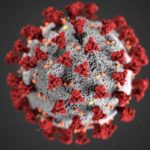
AstraZeneca, a biopharmaceutical company headquartered in the United Kingdom, and the University of Oxford today announced they are working on a vaccine for the coronavirus which causes COVID-19.
The vaccine is being developed by the The Edward Jenner Institute for Vaccine Research, an independent research institute in Berkshire, England, and Oxford Vaccine Group, at the University of Oxford. Under the agreement, AstraZeneca would be responsible for development and worldwide manufacturing and distribution of the vaccine if the clinical trials prove successful in showing the vaccine is effective. Oxford University’s press release said this is the first such partnership to be formed since the United Kingdom launched its dedicated Vaccines Taskforce to help find, test and deliver a new coronavirus vaccine just two weeks ago. It also comes alongside £20 million Government funding for Oxford University’s vaccine research and support for the institution’s clinical trials.
In initial work, scientists injected six macaque monkeys with the potential vaccine to see if it was safe. They exposed the monkeys to high doses of the virus. After 28 days, all 6 monkeys were still healthy. In an interview with the BBC, AstraZeneca’s chief executive, Pascal Soriot said work on a vaccine began in January. Soriot said the goal is to have a vaccine by the end of the year, which is an ambitious goal, and many things would have to go right for that to happen.
The potential vaccine entered Phase I clinical trials last week to study safety and efficacy in healthy volunteers aged 18 to 55 years, across five trial centers in Southern England. Data from the Phase I trial could be available next month. Advancement to late-stage trials should take place by the middle of this year.
Companies and universities around the world –including the Trump administration– are racing to find a vaccine for the cornavirus which causes COVID-19, which so far, according to Johns Hopkins University on Thursday, April 30 at noon, has taken more than 232,000 lives worldwide and nearly 63,000 in the United States.